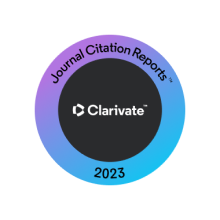Abstract
Background
Extracorporeal life support (ECLS), including extracorporeal membrane oxygenation (ECMO), is increasingly used in patients post-cardiac surgery. However, cardiopulmonary complications and delayed weaning remain common.
Objectives
This study aims to investigate the clinical course of post-cardiac surgery and extracorporeal membrane oxygenation patients using lung ultrasound and echocardiography.
Patient and methods:
This prospective multicenter observational study was conducted in the intensive care units of King Fahd Military Medical Complex, Saudi Arabia, and Cairo University, Egypt. A total of 103 adult patients requiring ECMO or post-cardiac surgery with cardiopulmonary bypass were enrolled.
Result
Postoperative echocardiographic assessment showed significant reductions in EF, TAPSE, and VTI, with increased VTI variability. Extubation time correlated significantly with EF, LVESD, LA diameter, and postoperative VTI variability. Diaphragmatic ultrasound revealed reduced excursion and thickness fraction postoperatively, both strongly associated with prolonged ventilation. LUS detected atelectasis, pleural effusions, and diaphragmatic dysfunction earlier than conventional imaging.
Conclusion
CCUS is a valuable bedside tool in post-cardiac surgery and ECMO patients. Echocardiographic parameters (EF, LVESD, and VTI variability) and diaphragmatic function indices are strong predictors of weaning success, while LUS facilitates early pulmonary complication detection. Incorporating CCUS into routine monitoring may enhance patient outcomes and optimize weaning strategies.
Recommended Citation
Ragab, Mohamed Abdelghany Mohamed; Mikhael, Suzi Fawazy; Elhadidy, Amr Elsayed; Abdelmoneim, Ihab Ahmed; alfariady, Khalid Abdulraheem; alhusil, Abdulrahman ibrahim; Mahmoud, Mohsen Salah Abdelazeem; Fahmy, Abdelraouf; Yacoub, Sarah Hassan; and Samter, Fathia Adel
(2025)
"Utilization of Critical Care U/S Imaging Tools for Assessment of Cardio-Pulmonary Complications in Extracorporeal Circulatory Support in Patients Post Cardiac Surgery and ECMO,"
Journal of the Saudi Heart Association: Vol. 37
:
Iss.
4
, Article 6.
Available at: https://doi.org/10.37616/2212-5043.1454
Creative Commons License

This work is licensed under a Creative Commons Attribution-Noncommercial-No Derivative Works 4.0 License.




